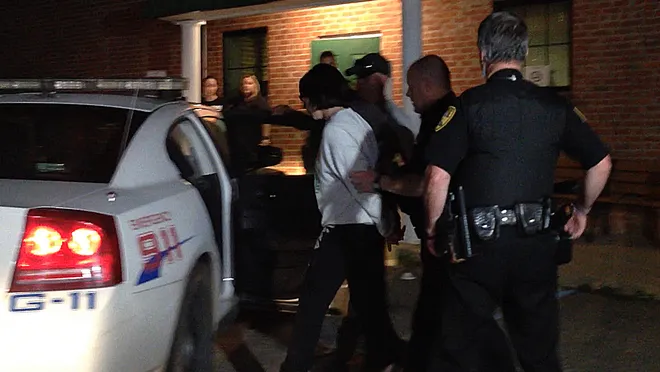Call us now:
The first thing to look at when confronted with a drug case of any kind is to determine if the police acted lawfully in acquiring the evidence against you. The police need to justify any detention of a person as one that is based on reasonable suspicion of criminality, and they need to justify any arrest as supported by probable cause that a crime has been committed. When the police are basing their reasonableness on information from an informant or tipster, they should be extra careful since they are normally relying on someone who they themselves have usually identified as a drug user or criminal actor. The recent Rivera case is a good example of a bad tip making for bad police work, which the appellate Court ultimately threw out as violating the 4th Amendment of the Constitution.

November 8th, 2024 – 2nd DCA
trafficking in fentanyl, possession with intent to sell or deliver, resisting without violence
Facts
Dylan Rivera appealed his conviction for trafficking in fentanyl, possession of a controlled substance with intent to sell or deliver, and resisting an officer without violence. The case revolves around Rivera’s arrest following a narcotics investigation involving a confidential informant (CI). Rivera was suspected of being “Nephew,” a person the CI arranged to buy fentanyl from, but no clear evidence tied Rivera to the narcotics transaction at that time.
During the arrest, officers found controlled substances on Rivera, including fentanyl and methamphetamine, after a foot chase. Rivera filed motions to suppress the evidence, arguing that the search of his person and containers was illegal. He contended that law enforcement had no objective reason to suspect him and that the resisting charge was invalid as the officers were not executing a lawful duty when they ordered him to stop. The trial court denied the motions, ruling that the search was reasonable based on standard procedures and potential danger of unknown contents in the containers.
No Reasonable Suspicion to Detain
At the hearing, Rivera argued that the State failed to present evidence connecting him to the confidential informant (CI) who arranged the drug buy, and there was no evidence showing how law enforcement identified him as the person known as “Nephew.” Rivera contended that the CI was unreliable, having been arrested earlier in the day, and had a motive to provide information to help her situation. Rivera also argued that law enforcement lacked reasonable suspicion to detain him or probable cause to arrest him.
The court considered the burden on the State to establish reasonable suspicion for detention and probable cause for arrest. It noted that while tips from CIs could provide reasonable suspicion, the reliability of the CI was critical, particularly since this CI was untested and had not provided verifiable information.
The court referenced previous cases, such as State v Flores, 932 So. 2nd 341 and Miller v State, 780 So. 2nd 151 to evaluate the sufficiency of the information provided by the CI. In Flores, the CI had a proven track record, and the police corroborated the details of the tip. In contrast, in Rivera’s case, the CI’s information was vague, and there was no evidence connecting Rivera to the phone call or establishing that he was “Nephew.” The only evidence was Rivera’s presence at Art’s Lounge, several hours after the scheduled time, and no detailed description of him or his vehicle was provided.
The court concluded that law enforcement lacked the reasonable suspicion necessary to detain Rivera when they ordered him to stop. As a result, the motion to dismiss should have been granted, and Rivera’s conviction for resisting without violence was reversed.
Rivera challenged the denial of his suppression motion, arguing that the searches of the closed containers removed from his person were warrantless and not valid as searches incident to his arrest, nor did they fall under any exception to the warrant requirement. The appellate Court agreed with Rivera’s argument.
The Court highlighted that the evidence did not establish reasonable suspicion to detain Rivera, nor probable cause for his arrest when he arrived at Art’s Lounge. The trial court had found that the baggie Rivera dropped during a brief foot chase provided probable cause for his arrest, but this finding was unsupported by the evidence. The arrest was unlawful, so the evidence discovered during searches incident to the arrest should have been suppressed.
Even if the arrest had been lawful, the court explained that a search incident to an arrest only applies to items within the arrestee’s immediate control. Rivera had been handcuffed and separated from the lockbox and bag before they were searched. The court cited previous cases, emphasizing that once Rivera was secured, the search of items he no longer controlled was unlawful.
The trial court incorrectly applied the “evidence relevant to the crime of arrest” exception from Gant, which is specific to vehicle searches. Since Rivera was not in a vehicle at the time of his arrest, this exception did not apply. As a result, the court reversed Rivera’s convictions for trafficking, possession, and resisting an officer, and remanded the case for his discharge.
Questions about a potential drug case? illegal search and seizure? Need legal help? Contact us today for a free consultation.
